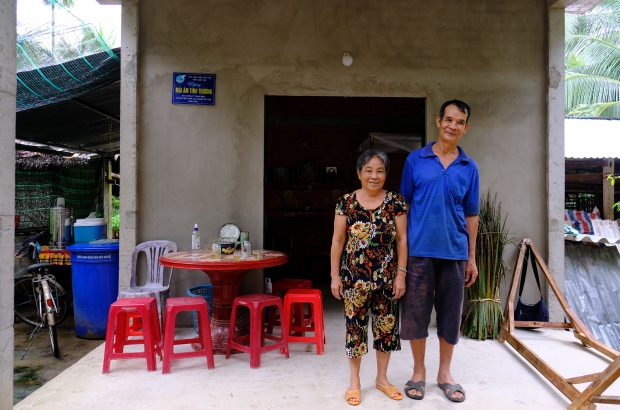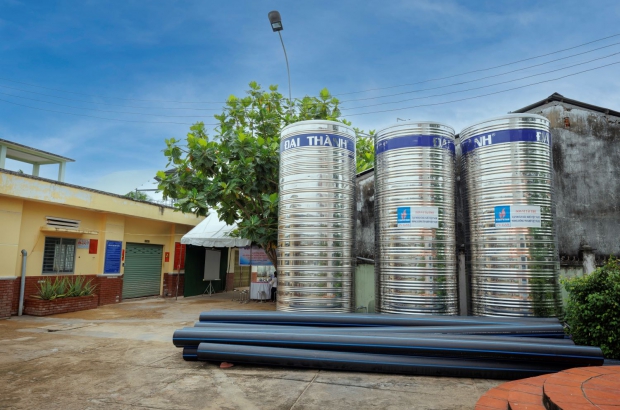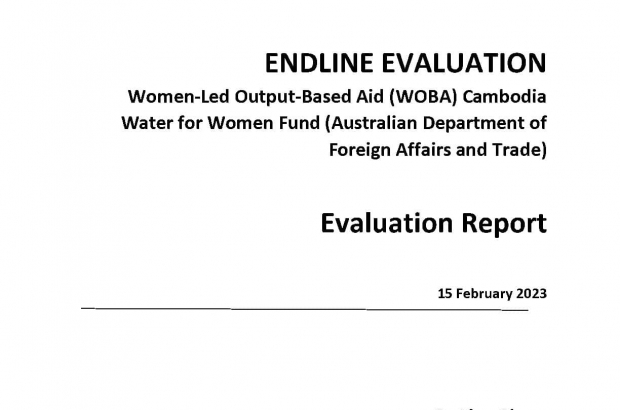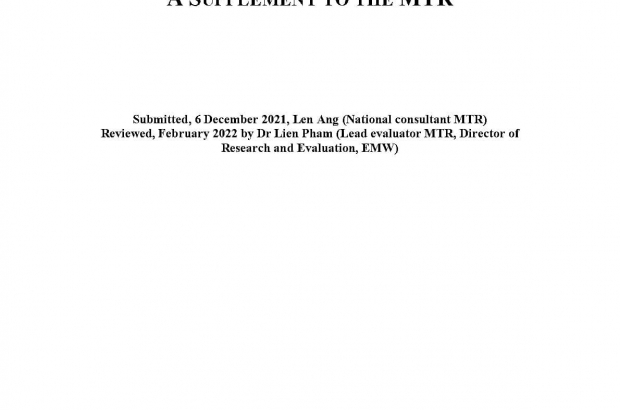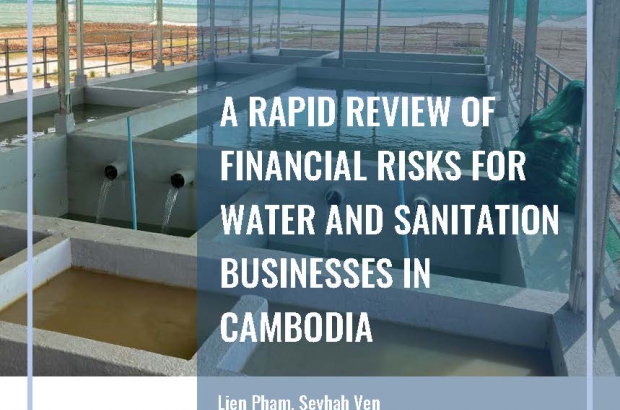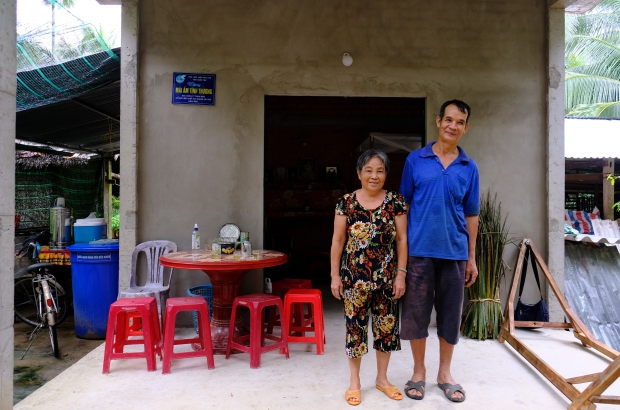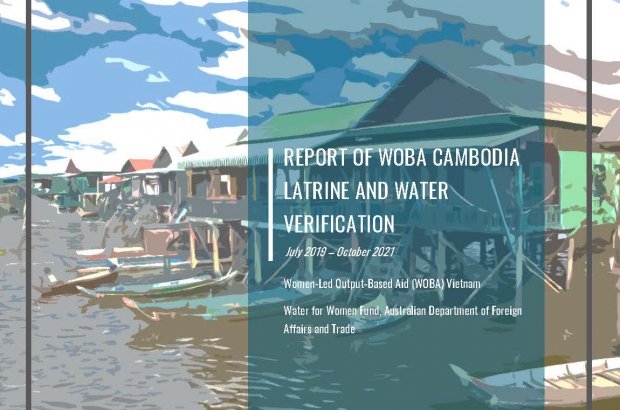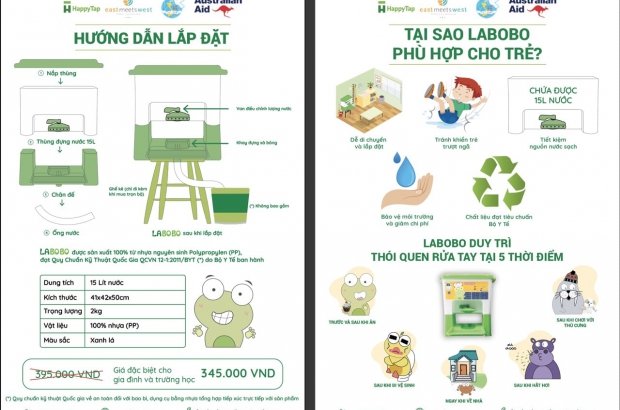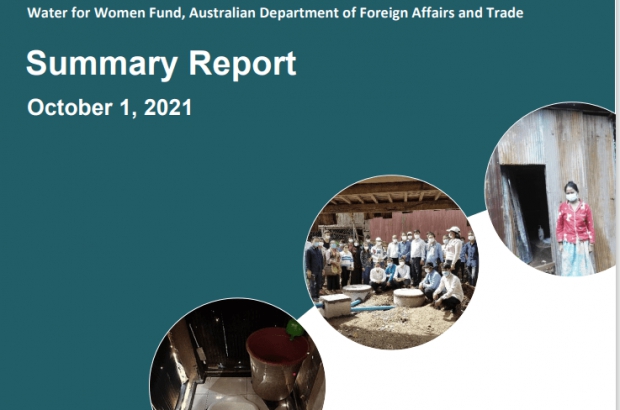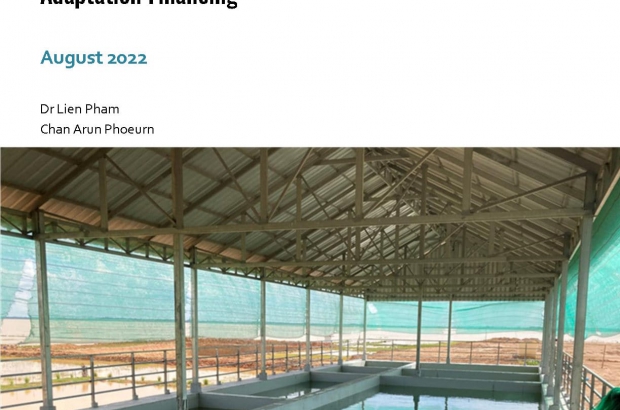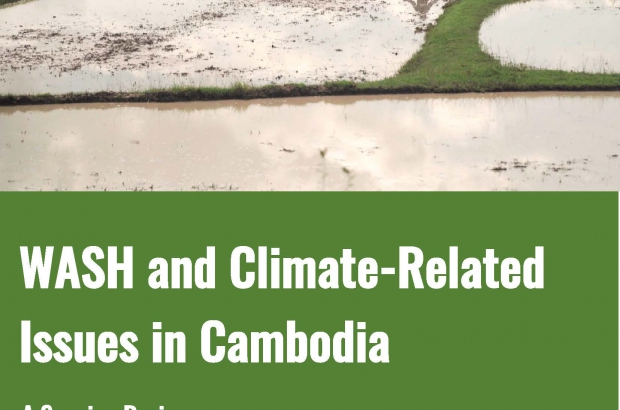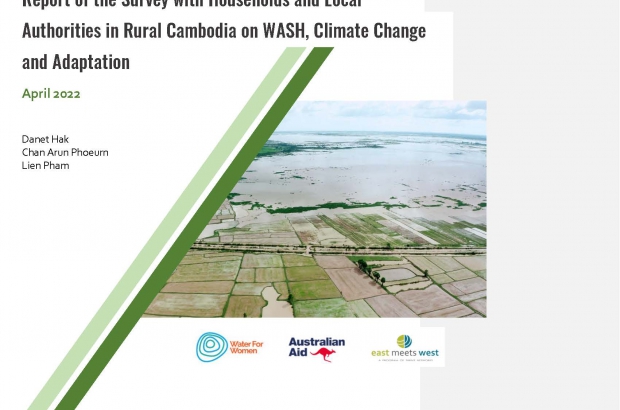23
Impacts of WOBA for marginalized households in rural Viet Nam. Lessons learnt from the Mid-Term Review of WOBA Viet Nam
This learning note is based on the findings from the mid term review of WOBA Vietnam, to share the knowledge and lessons learned about the beneficiaries’ WASH needs and the intended/unintended impacts of the WOBA project for the beneficiaries who are the marginalized households in the rural Vietnam.
39
Financial health of private sector piped water businesses in rural Vietnam. Learning note
This paper presents and discusses the results of a survey with Vietnamese private sector piped water suppliers about their businesses’ financial risks and viability, and their desire to provide services to the poor and vulnerable households in rural Vietnam.
23
End-line Evaluation Report for Women-Led Output-Based Aid (WOBA) Cambodia
The evaluation report focuses on all aspects of the project programming, including sanitation, piped water connection, climate resilient water safety plan pilot, FSM pilot, menstrual health hygiene training, and other WASH related trainings.
24
A review of the OBA payment process in WOBA – A supplement to the Mid-term Review
This report summarises the results of the field work conducted by Mr Len Ang (independent consultant) to document the WOBA project’s OBA payment process in the four provinces (Pursat, Kratie, Kampong Cham, and Prey Veng).
23
A Rapid Review of Financial Risks for Water and Sanitation Businesses in Cambodia
This review of prior studies on financial risks in supply market of WASH products and services was conducted to better understand financial risks issues generally in developing countries and specifically in Cambodia. The report synthesises issues identified in the review and document the risks that WASH businesses encounter along the supply chains, and factors associated with these financial risks in the WASH markets particularly in Cambodia. The results are used to develop a questionnaire to survey private sector WAS suppliers in the WOBA project.
32
Impacts of WOBA for marginalized households in rural Viet Nam. Lessons learnt from the Mid-Term Review of WOBA Viet Nam
This learning note is based on the findings from the mid term review of WOBA Vietnam, to share the knowledge and lessons learned about the beneficiaries’ WASH needs and the intended/unintended impacts of the WOBA project for the beneficiaries who are the marginalized households in the rural Vietnam.
22
Report of WOBA Cambodia latrine and water verification (July 2019 – Oct 2021)
This report presents the results of WOBA’s verification of newly built latrines and new piped water connections. The verification was conducted in the period of July 2019 to October 2021 for 5,325 latrines and 128 water connections by the EMW WASH team.
32
Hand washing products and hygiene promotion in rural Vietnam: A case study of the COVID-19 Response in the Women-Led Output-Based Aid (WOBA) Vietnam project
COVID-19 has brought attention to behavioural change communication. This study aimed to understand the extent to which the Women’s Union (WU) promotion of handwashing during the COVID-19 pandemic have influenced the knowledge, attitude and handwashing behaviour in rural Vietnam. Employing a case study approach in two provinces, the study surveyed 372 households, health staff, and kindergarten personnel, followed by structured interviews with 12 WU member. The findings suggest that there was a strong sense of morality among the WU members who viewed their handwashing promotion as a collective duty to ensure the health and wellbeing of their community. They promoted handwashing to prevent COVID-19 as part of the WU’s propaganda mandate of a socio-political organisation, which afforded them the legitimacy and authority in the community to carry out the promotion. From the community perspective, accessibility to these communication events and disseminated information on handwashing varied by education and income levels. Perceptions of effective communication methods to change handwashing behaviour were also influenced by socioeconomic characteristics of the information receivers. The study highlights the importance of understanding community-based approach to behavioural change communication, and methodological challenges in assessing such practices in the context of rural Vietnam.
24
Summary report of the Mid-Term Evaluation of WOBA Cambodia
This report summarises the findings of the mid-term evaluation of WOBA Cambodia. The evaluation assesses WOBA’s progress towards its planned outcomes and support learning by exploring the effectiveness of the strategies and activities implemented from June 2018 to June 2021. The summary report explores some initial indications of impacts and sustainability. It provides important recommendation in the ongoing implementation of the program and progress towards the project’s end-of-program outcomes.
21
Report of Focus Group Discussions and Scenario Experiment of WASH Suppliers’ Adaptation Financing
This publication reports on the results of the scenario-based field experiment and focus group discussion with the private sector WASH suppliers to understand the internal and external conditions which influence their decisions to provide resilient WASH services in the community. It offers insights into the conditions that enable private sector providers to deliver resilient WASH services for marginalised communities in rural Cambodia.
22
WASH and Climate-related Issues in Cambodia: A scoping review
This review scopes the current state of WASH access in Cambodia, and climate risks and vulnerability particularly in rural Cambodia. Relevant policies relating to WASH and climate mitigation and adaptation are discussed. The review is compiled to inform the development of the survey with households and local authorities about WASH situation, climate change experience and coping measures in rural Cambodia.
18
Report of the Survey with Households and Local Authorities in Rural Cambodia on WASH, Climate Change and Adaptation
This report presents the findings from the survey with households and local authorities in five provinces in rural Cambodia. The survey aimed to understand the current state of socio-economic situation, access and use of WASH service, perception of climate change impacts and existing adaptive capacity of the Cambodian rural households, particularly the poor and GESI groups.

